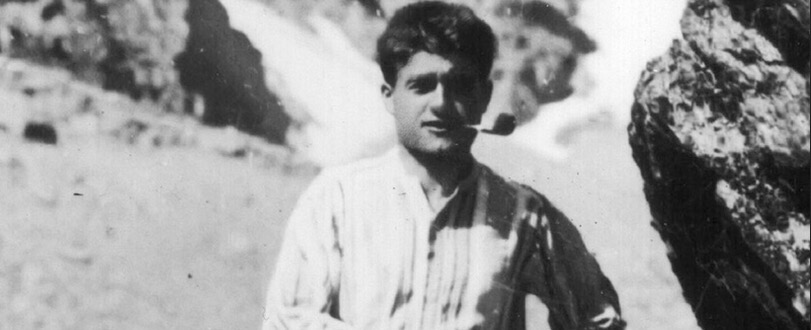Blessed Pier Giorgio Frassati was born a child of privilege and wealth in Turin, Italy, in 1901. His father founded and directed a newspaper and was influential in Italian politics, eventually appointed Italy’s ambassador to Germany.
Frassati showed great devotion to Our Lady and her Son early in life. He received daily Communion as well. Later in life, he’d comment on this spiritual practice, relating it to living the social Gospel, saying, “Jesus pays me a visit every morning in holy Communion, and I return the visit in the meager way I know how, visiting the poor.” His faith compelled him to attend to the needs of the poor, joining the St. Vincent de Paul Society when he was 17.
Frassati’s faith informed everything about his life. He knew our faith must shape our lives if we are to have purpose. “To live without faith, to have no heritage to uphold, to fail to struggle constantly to defend the truth: this is not living. It is scraping by. We should never just scrape by, but really live,” he once wrote.
He desired to study mining engineering at university, telling a friend he desired to “serve Christ better among the miners.” Academics didn’t keep Frassati from his search to effect change in society and politics.
Frassati gave all he had to the poor, saving his bus fare for the poor by running home. In every way imaginable, Pier Giorgio desired to emulate Christ completely, making a total gift of himself to others. While many left his hometown in the summers for vacation, he would remain behind, saying, “If everybody leaves Turin, who will take care of the poor?”
His activism reached a high point with his role in uniting Catholic students throughout the world in the common purpose of working for world peace in an association called Pax Romana. He organized its first convention in 1921. His care of the poor and his work for peace have earned him the moniker “Man of the Eight Beatitudes” by Pope St. John Paul II at his 1990 beatification.
Pier Giorgio enjoyed mountain climbing and often went with friends on outings in the Italian Alps. His deep spiritual life was no secret; he was always sharing it with those he knew. These recreational activities were opportunities for Frassati to lead his friends closer to the Lord — often bringing them to Mass, praying the Rosary or reading from the Bible on these occasions.
As a man of culture, he loved art in all its forms, frequenting the opera, theatre and museums.
Even once diagnosed with polio shortly before graduating from university, Frassati chose to care for his dying grandmother rather than attend to himself. And after a week of pain and suffering, he died on July 4, 1925.
Constant care for the sick and the poor consumed Frassati up to his dying moments. He even spent his last hours instructing a friend to take his own medication to an impoverished sick man he used to visit. His funeral was attended by so many poor people he had helped, whom the family never knew. These unlikely mourners also were surprised to learn their caregiver came from such an influential and wealthy family.
Pier Giorgio’s legacy continues. In 2010, Pope Benedict XVI invited the Church’s youth to follow in Pier Giorgio’s example and “discover that it is worth it to commit oneself for God and with God, to respond to his call in the fundamental decisions and the daily ones, even when it is costly.”
His feast day is July 4.
Michael R. Heinlein is editor of Simply Catholic.

